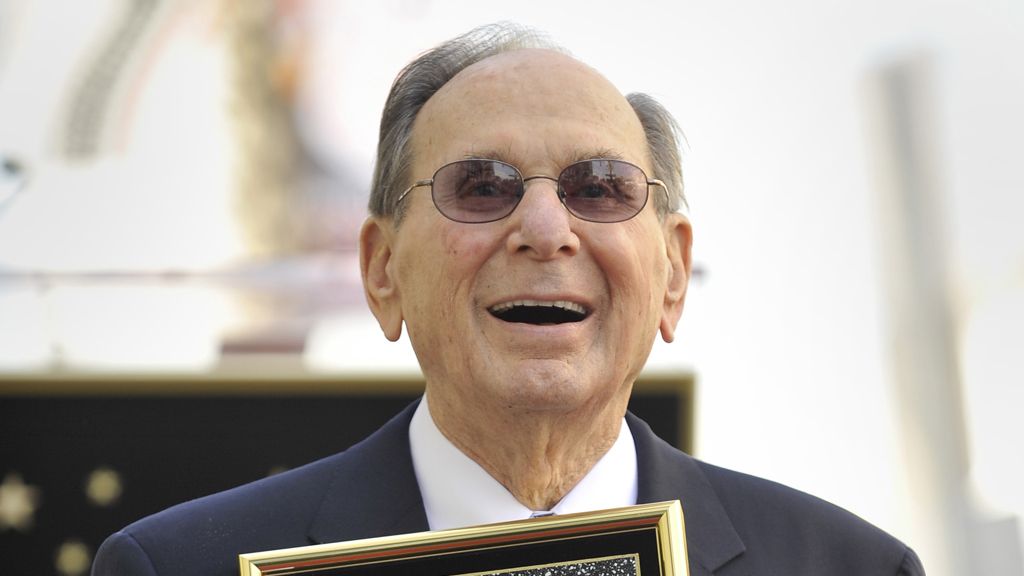I Say a Little Prayer songwriter Hal David dies at 91
Hal David, one half of the duo responsible for hits like Walk on By, I Say a Little Prayer and Do You Know the Way to San Jose, dies in Los Angeles at the age of 91.

The lyricist, who wrote a string of hits with singer-songwriter Burt Bacharach for a variety of recording artists in the 1960s and beyond, had experienced complications following a stroke.
Bacharach and David were among the most successful musical teams in modern history, with hits including (They Long to Be) Close to You and That’s What Friends Are For. Although most associated with Dionne Warwick, their music was recorded by many of the top acts of their time, from Barbra Streisand to Frank Sinatra and Aretha Franklin.
Oscar winner
The duo won an Oscar for Raindrops Keep Fallin’ on My Head (from the movie Butch Cassidy and the Sundance Kid), plus Grammys and Tonys for other works.
In May, Bacharach and David received the Library of Congress Gershwin Prize for Popular Song during a White House tribute concert attended by President Barack Obama.
Even at the end, Hal always had a song in his head, Eunice David, Hal’s wife
David could not attend because he was recovering from a stroke and his wife Eunice David accepted on his behalf.
David, a journalist by trade, met Bacharach when both worked in the Brill Building, New York’s legendary Tin Pan Alley song factory where writers cranked out songs and attempted to sell them to music publishers.
They scored their first big hit with Magic Moments, a million-selling record for Perry Como.
In 1962 they began writing for a young singer named Dionne Warwick, whose versatile voice conveyed the emotion of David’s lyrics and easily handled the changing patterns of Bacharach’s melodies.
David, meanwhile, went on to collaborate successfully with several other composers: John Barry with the title song of the James Bond film Moonraker; Albert Hammond with To All the Girls I’ve Loved Before, which Julio Iglesias and Willie Nelson sang as a duet; and Henry Mancini with The Greatest Gift in The Return of the Pink Panther.
Keeping it simple
In a 1999 interview, David explained his success as a lyricist: “Try and tell a narrative. The songs should be like a little film, told in three or four minutes.
“Try to say things as simply as possible, which is probably the most difficult thing to do.”
His widow said that he kept writing up until his death. “Even at the end, Hal always had a song in his head,” Eunice David said.
“He was always writing notes, or asking me to take a note down, so he wouldn’t forget a lyric.”